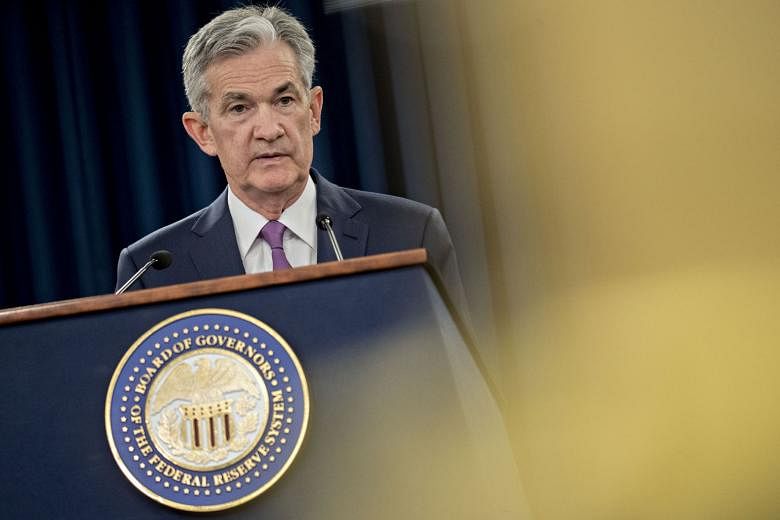WASHINGTON (REUTERS) - The Federal Reserve on Friday (July 13) pointed to "solid" US economic growth during the first half of the year in its semi-annual report to Congress, where it also reiterated that it expected to continue to raise interest rates gradually.
It is the Fed's second submission to lawmakers since Chairman Jerome Powell took the helm of the Fed in early February.
He is scheduled to answer questions on it before lawmakers on Tuesday and Wednesday.
Details of the 63-page report were consistent with the Fed's current outlook detailed at its policy meetings, which is that strong economic growth and low unemployment require rate rises but that a lack of severe inflation pressures means they can remain gradual.
Financial markets were little moved following the release of the report.
"Over the first half of this year, overall economic activity appears to have expanded at a solid pace," the Fed said, adding that the economy continues to be supported by favourable consumer and business sentiment, past increases in household wealth, solid economic growth abroad, and accommodative domestic financial conditions.
As such, the Fed "expects that further gradual increases" in interest rates would be appropriate as it strives to continue to nurture an economic expansion that is now the second-longest on record.
The Fed said that the Trump administration's package of tax cuts had likely contributed to a rebound in consumer spending from a sluggish start to the year and will likely provide a moderate boost to economic growth this year.
The relatively rosy picture of the US economy was also referenced by Powell in an interview on Thursday in which he said he believes the US economy remains in a "really good place" with recent government tax and spending programs set to boost gross domestic product for perhaps three years.
The Fed has raised interest rates seven times since it began a tightening cycle back in December 2015 and last lifted its benchmark lending rate by a quarter percentage point in mid June. The Fed sees another two rate hikes by year end.
TRADE TENSIONS AFFECTING MARKETS
The central bank barely weighed in on the potential impact of the Trump administration's protectionist trade policies, but noted that the uncertainty around them was a concern to financial markets.
Powell said on Thursday that sustained high tariffs on products and services could hurt the economy and a number of policymakers have fretted that trade disputes with Europe, Canada, Mexico and China could slow business investment.
"What's going on in the short run certainly isn't positive,"Dallas Fed President Robert Kaplan said in an interview with Reuters on Friday, adding he would need to downgrade his outlook if tensions between the United States and its trade partners escalate.
Trump has imposed or threatened tariffs on US$250 billion (S$340 billion) of Chinese goods and riled key allies by imposing steel and aluminum tariffs on Europe, Canada and Mexico. He has also threatened to tax European car imports.
"We don't see anything too surprising," said Jim O'Sullivan, chief US economist at High Frequency Economics in White Plains, New York, of the report.
"In short, Fed officials anticipate continued gradual tightening, assuming no major fallout from trade tensions."
Elsewhere in the report, policymakers once again flagged that wage growth has been weaker than they would have expected given the current unemployment rate of 4 per cent.
Wage gains have been "moderate," the report said, likely held down by weak productivity, and it highlighted the possibility that there could still be some further slack in the labour market, with more prime-age workers poised to enter the workforce "if labour demand remains strong."
The Fed showed little concern about financial stability, saying Treasury markets were broadly stable and there was minimal evidence of liquidity pressures.
However, it noted valuations were elevated for some assets and that an economic slowdown could amplify vulnerabilities for lower-rated corporates.

